1310 Nowell Road
Raleigh, NC 27607
1310 Nowell Road
Raleigh, NC 27607
Existing CSP Client: (919) 424-2060
SALES: (919) 420-3231
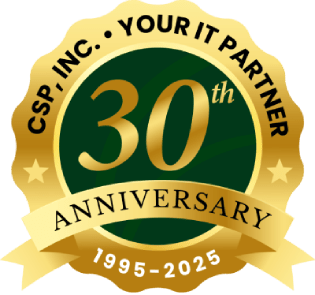
For many people, the vision of a world of driverless cars represents a commuter’s utopia, and for good reason. Commuting is costly, not only in terms of time and money but in terms of stress-related illnesses. Despite the fact that people have adapted to hurtling through space at 70 miles per hour while avoiding a potentially deadly crash, traffic is anything but relaxing. Just the idea of a car expertly programmed to detect and respond instantly to hazardous road conditions and the erratic behavior of all those other drivers is enough to lower a commuter’s blood pressure considerably. (Our own driving is, of course, always impeccable.) Driverless cars could also make it possible for people to give one another the increasingly rare gift of their undivided attention while traveling.

Any dream of utopia contains within it the potential for the creation of a nightmarish dystopia, and a world of driverless cars is no exception. The number of deaths and injuries resulting from crashes caused by human error could be greatly reduced. However, the number of deaths and injuries caused by deliberate human actions, such as hacking the computer systems of driverless cars, could increase. It isn’t hard to imagine the horror of a driverless car being hijacked and used to drive into a crowded building or cause a multi-car pile-up on a busy interstate highway. One article describes an experiment in which hackers demonstrated, under controlled conditions, how just such a scenario would be possible.
Security Vulnerabilities
IT experts are the first line of defense of our collective vision of a driverless utopia. Recently, the Cloud Security Alliance published a detailed report identifying 20 potential cyber-security threats to connected vehicle systems, including driverless cars. Many of those threats are vulnerabilities caused by the very things that have helped make commutes if not more enjoyable, at least more bearable. Those potential security loopholes include onboard diagnostic ports used for vehicle maintenance, USB ports, Wi-fi, Bluetooth, and entertainment devices that utilize internet connectivity.
Electronic vehicles depend on a CAN (Controller Area Network) message bus that allows communication between devices. The CAN bus was designed as a closed network without security features. According to the report, “An unauthorized party that gains access to the bus can block legitimate messages and transmit illegitimate ones.” Keyless entry systems and the Amazon Echo, which can start a vehicle remotely, also present potential security concerns. That’s why the group recommends that separate CAN buses be used for critical safety features such as braking and lane detection systems.
Precautionary Measures
Brian Russell, the chairman of the alliance’s IoT Working Group, stresses the importance of developing operational designs that “incorporate security throughout the development”. He also recommends using the Department of Transportation’s Connected Vehicle Reference Implementation Architecture as a design guide. Its protocols apply security measures to the enterprise, functional, physical and communications elements of connected driverless systems. Vehicles communicate with one another using both established infrastructure and a DSRC (Dedicated Short Range Communication). The DSRC assigns each message a digital certificate which prevents tampering. To keep out intruders, third party devices should only access a vehicle’s Bluetooth system using the mutual recognition and authentication of Bluetooth Low Energy.
In addition to high-tech security measures being designed and implemented, societies will require a whole new set of laws to successfully integrate driverless technology. That doesn’t just include traffic and insurance laws, but privacy laws. The amount of personal information collected by driverless technology is rivaled only by the amount collected by Facebook. Like Facebook, those who wish to utilize driverless technology may have to sign agreements too lengthy and complicated to read and understand without the expert assistance of a legal professional. In 2015, a class-action lawsuit was filed against Toyota Motor Corp., Ford Motor Co., and General Motors LLC, alleging fraud, false advertising, and violations of consumer protection laws. While the district court dismissed the complaint, the Electronic Privacy Information Center (EPIC) has filed a brief requesting that the dismissal is reversed.
It Takes a Global IT Village
Creating a commuter’s utopia in which drivers can enjoy all the benefits of driverless technology is an achievable goal. With the right security measures, it will become possible for elderly to retain their travel independence and for the young to increase theirs. Parents will be able to spend less time chauffeuring and more time parenting. Workers will be able to spend less energy commuting and more time and energy to enjoy the fruits of their labors. The phrases “fighting traffic” and “road rage” will disappear from our daily lexicon, making room for more interesting, and pleasant, topics of conversation.
IT professionals worldwide are working overtime to make a world of driverless cars a dream come true. The internet has revealed the degree to which we are all interconnected. That connectivity has the potential to significantly improve the quality of our lives. It also has the potential to expose us to greater danger. That’s why programmers and app developers, whether employed by a private enterprise or governmental organizations, must work together to prevent that dream from becoming a nightmare.
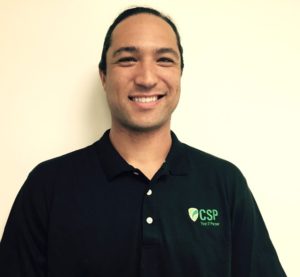
Always at your service to provide the highest level of quality support to our customers.

Anthony Firth Client Engineer

“I’m passionate about building and fostering relationships, and finding solutions for success.”

Michael Koenig Client Account Manager

“I help clients stabilize and grow their IT infrastructure so they can focus on growing their core business.”

Josh Wilshire Systems Engineer Team Lead
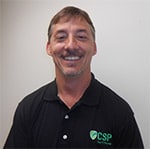
“I strive to provide the highest level of quality service to our customers.”

Tommy Williams Sr. Hardware Engineer

“I’m driven by the steadfast belief that technology must serve as a business enabler. This mantra has driven 21
Years of successful partnerships.”

Stephen Riddick VP Sales & Marketing
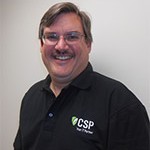
“CSP doesn’t succeed unless your company succeeds.”

Stephen Allen Inventory Manager
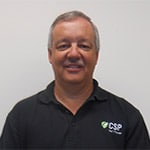
“Through my intuition and genuine concern to help others I have built long-lasting relationships with our customers, co-workers and business partners.”

Scott Forbes VP Support Services
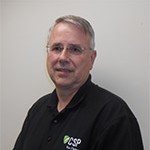
“Every day, I work with clients to help plan the future of their businesses.”

Michael Bowman vCIO

“Your IT problems become our IT solutions.”

Mark McLemore Project Engineer
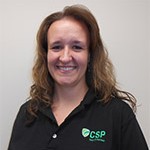
“Managing internal and external operations to ensure that CSP provides quality and reliable customer service .”

Margie Figueroa Business Manager
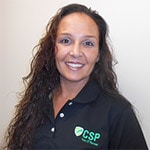
“Providing quality internal and externals financial support to our customers and accounting support to CSP.”

Katie Steiglitz Accounting Administrator
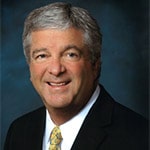
“Some call me the CEO. I call myself the Cheerleader for an awesome team!”

William B. Riddick Founder & CEO
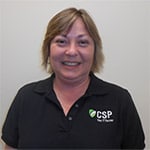
“CSP is here to assist you with your IT needs.”

Beth Wylie Inside Sales Manager




On What Questions You Need To Ask Before Signing Any Agreement.
"*" indicates required fields

Raleigh IT Support Company and IT Services Provider | CSP Inc.
1310 Nowell Rd,
Raleigh, NC 27607
Existing CSP Client: (919) 424-2060
SALES: (919) 420-3231
Receive email updates and informative marketing materials by subscribing to our newsletter.
"*" indicates required fields